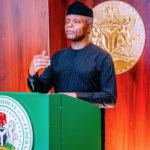THIS is not the best of times for Nigeria as a country as there has hardly been any cheery news about it in a long while. The polity is suffused with depressive news that put the country on the spotlight for the wrong reasons. Another of such bad tidings doing the rounds now is that Toyota, arguably one of the biggest automakers in the world, has snubbed Nigeria and made Ghana its investment destination. It will be recalled that Twitter did the same thing recently, and that was even before the imbroglio between it and the Presidency culminated in the official suspension of its platform in the country. In the recent past, too, quite a few multinational companies, including Dunlop, had also moved their operations from Nigeria to Ghana and there seems to be no end to the ugly trend.
Ironically, the Federal Government is piling up debts, both local and foreign, ostensibly to build economic infrastructure that would attract investors, but the multinational companies whose investments could bring a significant fillip to the domestic economy by way of employment generation and tax payments are unwilling to invest in the country. Although the multinational companies are snubbing and denying the country of their investments, the bulk of their products and services would still have to be sold in Nigeria because of its huge market. This unwholesome development is painful but it is by no means surprising. Naturally, investments are known to flow to climes where their owners could thrive without compromising their safety and that of the investments. While the country is the largest economy in Africa with a huge and youthful population that should ordinarily be the toast of any investor, its reputation as a cesspit of corruption coupled with poor economic infrastructure has always discouraged foreign investors. And as if that is not enough, the worsening insecurity across the length and breadth of the country has compounded the already bad situation.
No rational investor will invest his/her capital in an atmosphere of topsy-turvy. Security of life and property must be assured before consideration is given to the potential yields from investments. And for a polity that is more or less on tenterhooks and oscillating between peace and chaos, the gains of many years of business investments could be wiped out with the initial capital in a fit of momentary madness or revolt by the system. For example, in the aftermath of the #EndSARs protests of last year, there was hardly any investor operating in the country that did not assign a disproportionately huge weight to security in the matrix of their investment decisions. This was the case not just because of the monumental and wanton destruction of lives and economic assets that attended the protests, but also, and more importantly because of, the sub-optimal official interventions during and after the protests. And that is in addition to the persistent and escalating insecurity occasioned by the activities of Boko Haram terrorists, bandits, killer herdsmen and kidnappers. Such an environment is clearly inclement for investments.
Besides, as a result heightening insecurity, the contributions of economic actors to the system in terms of their number and productivity have been in decline for a while. For instance, many farmers in the North and in certain areas in the South-West have not been able to conduct their farming activities for fear of attacks by bandits, killer herdsmen, kidnappers and Boko Haram terrorists. Yet, farmers, by reason of their significant role in food production, are arguably the most important economic actors in any polity. The consequences of farmers shunning farming as a result of pervasive insecurity are already reflecting in the spiraling prices of staple foods. If farmers who are local investors cannot practise their trade because of the inclement business environment, it is inconceivable that foreign investors will endanger their lives and capital in such an unfriendly clime.
Sadly, the economic/ business climate in the country is fast moving from risky to uncertain. And that has grave implications for investors’ willingness to commit their capital. To be sure, some investors can actually operate in a risky but profitable business environment as long as they have the capacity to estimate the risks and deploy strategies to mitigate them. However, that is not the case in a situation of uncertainty which is seldom amenable to statistical estimation. It is doubtful that the government appreciates the enormity and ramifications of the challenges at hand. And even if it does, it sure does not have a panacea for the problems. For instance, President Muhammadu Buhari prescribed two hollow and patently ineffective solutions to insecurity in the country recently. One, he admonished state governors to take charge of the security situation in their territories and desist from running to him in Abuja each time they have security issues. This is rather strange from a president who is diametrically opposed to the establishment of state police, and has yet to alter the control and reporting lines of the state command of the various security agencies in favour of the Chief Executive Officer of each of the federating units.
Two, the president proposed the recovery of grazing reserves/ routes from encroachers and the handover of same to Fulani herdsmen as a solution to the attack on farmers by herdsmen, destruction of farm crops and kidnapping for ransom. How can a modern-day leader be prescribing an anachronistic and inefficient method of animal husbandry in this day and age? How will analog prescriptions effectively address the challenges of the digital era? Not a few Nigerians believe that the two sub-optimal suggestions by President Buhari are a reflection of the low quality of solutions he has been offering to the myriads of challenges confronting the country. Truth be told, while politicians may allow their judgments to be coloured or impaired by primordial sentiments, investors do not have such luxury. Therefore, the Toyotas and Twitters of this world will continue to shun Nigeria as a viable investment destination as long as the current unfriendly investment climate in the country subsists.
YOU SHOULD NOT MISS THESE HEADLINES FROM NIGERIAN TRIBUNE
Lagos Is Second Least Liveable City In The World For 2021
Lagos is the second least liveable city in the world for the year 2021. This is according to the most recent annual ranking put together by the Economist Intelligence Unit (EIU)…
CLAIM 1: A Twitter user claims UNICEF said any efforts to block children from accessing pornography might infringe their human rights…
WATCH TOP VIDEOS FROM NIGERIAN TRIBUNE TV
- Relationship Hangout: Public vs Private Proposals – Which Truly Wins in Love?
- “No” Is a Complete Sentence: Why You Should Stop Feeling Guilty
- Relationship Hangout: Friendship Talk 2025 – How to Be a Good Friend & Big Questions on Friendship
- Police Overpower Armed Robbers in Ibadan After Fierce Struggle






